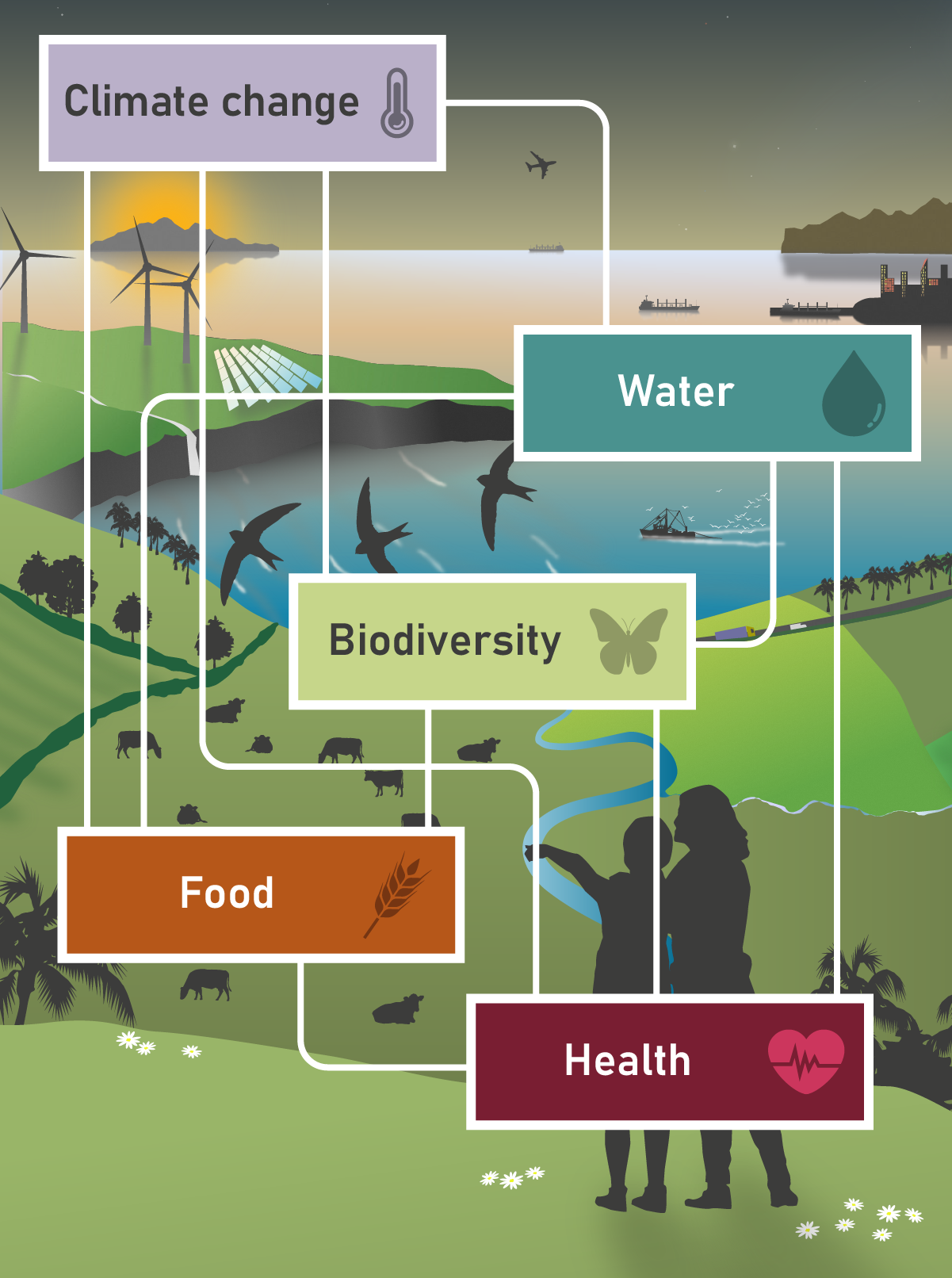A new landmark report provides the most comprehensive assessment to date of the complex interconnections between biodiversity, food security, water availability and quality, health risks and climate change – and outlines solutions that would deliver multiple benefits.
The three-year international study, co-chaired by Professor Paula Harrison of the UK Centre for Ecology & Hydrology (UKCEH), involved 165 international experts in a range of disciplines and was carried out for the Intergovernmental Platform on Biodiversity and Ecosystem Services (IPBES).
While the major global crises facing biodiversity, water, food, health and climate systems are interlinked with the challenges often amplifying each other, the experts say existing governance and actions to address these crises fail to tackle the complexity of interlinked problems and can be ineffective and counterproductive.
They add, biodiversity is declining across every region of the world, largely as a result of human activity, which has direct and dire impacts on food security and nutrition, water quality and availability, health and wellbeing outcomes, resilience to climate change and almost all nature’s other contributions to people.
The Nexus assessment summary was approved on 16 December 2024 at the 11th session of the IPBES Plenary – made up by the representatives of the 147 governments that are members IPBES – at Windhoek, Namibia.
Fragmented decision-making
Professor Harrison, Principal Natural Capital Scientist at UKCEH, explained it was crucial that decisions and actions moved “beyond single issue silos”, adding: “Efforts of Governments and other stakeholders have often failed to take into account indirect drivers and their impact on interactions between nexus elements because they remain fragmented, with many institutions working in isolation – often resulting in conflicting objectives, inefficiencies and negative incentives, leading to unintended consequences.”
More than half of global gross domestic product – more than $50 trillion of annual economic activity around the world – is moderately to highly dependent on nature. But the report says current decision making has prioritised short-term financial returns while ignoring costs to nature, which is having significant negative knock-on effects on biodiversity loss, climate change, water availability and human health. These negative impacts represent the unaccounted-for costs of current approaches to economic activity costing the world many trillions of dollars.
Delaying the action needed to meet policy goals will seriously increase the costs of acting later– doubling for biodiversity and adding $500 billion per year for climate change.
Roadmap for action
The report authors say there are a significant number of actions, from national to community level, that are available to sustainably manage biodiversity, water, food, health and climate change, many of which are also low cost.
They present more than 70 response options for decision-makers to help manage the nexus elements synergistically using nexus approaches to create multiple benefits. This is supported by a road map for nexus action that has 8 deliberate steps to help identify problems and shared values, in order to work towards holistic solutions for implementing the response options.
The report also examines future challenges and opportunities by assessing nearly 200 scenarios.
“Future scenarios do exist that have positive outcomes for people and nature by providing co-benefits across the nexus elements. The future scenarios with the widest nexus benefits are those with actions that focus on sustainable production and consumption in combination with conserving and restoring ecosystems, reducing pollution, and mitigating and adapting to climate change,” said Professor Harrison.
About the report
The Assessment Report on the Interlinkages Among Biodiversity, Water, Food and Health was produced by 165 international experts from 57 countries, co-chaired by Professor Harrison of UKCEH and Professor Pamela McElwee of Rutgers, The State University of New Jersey.
The Summary for Policymakers and the media release are available on the IPBES website. The full report will be published at a later date.
